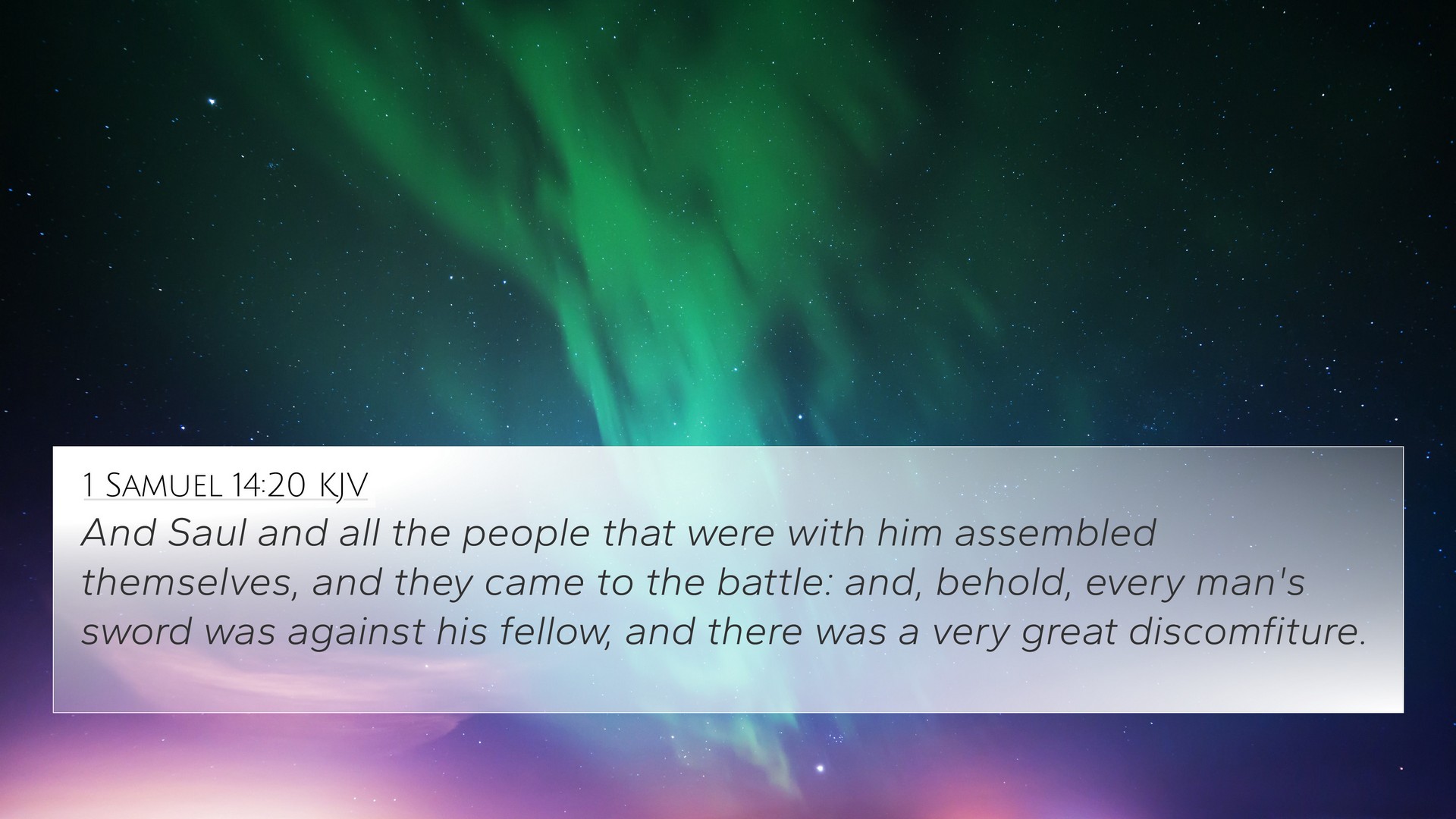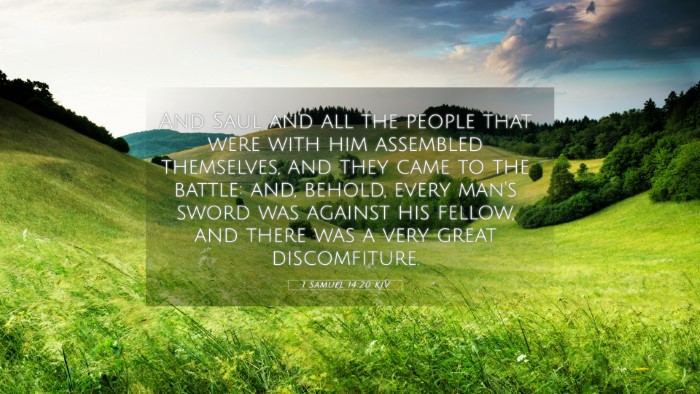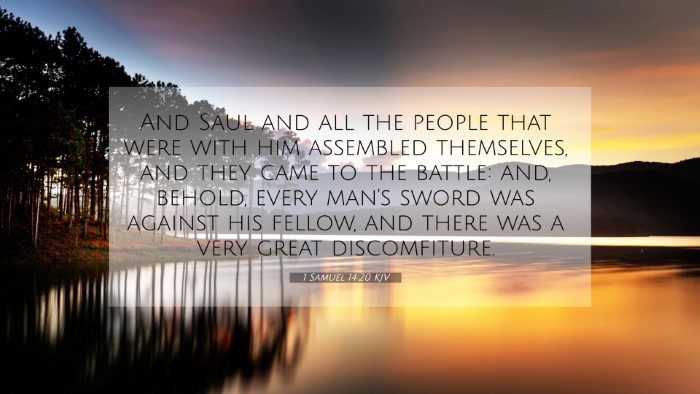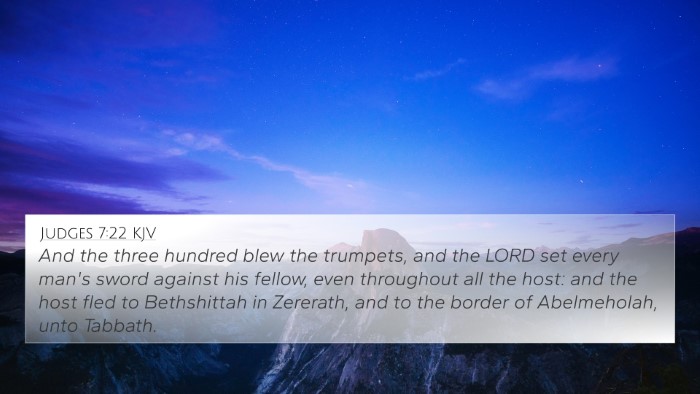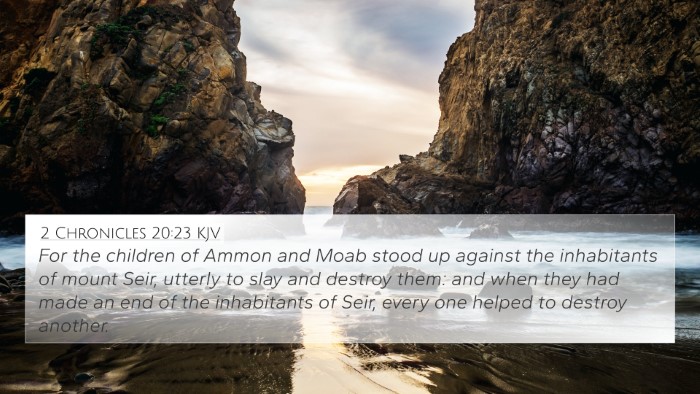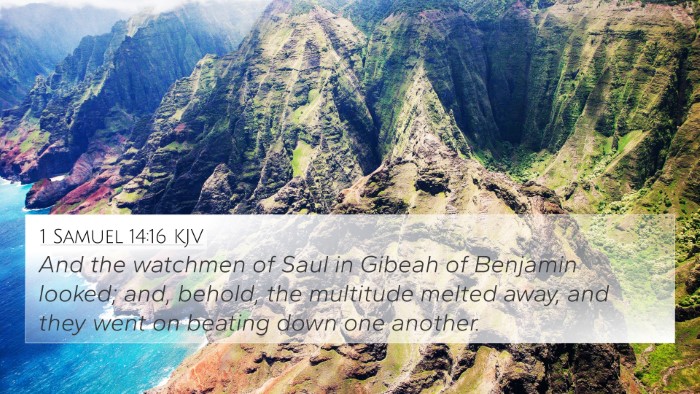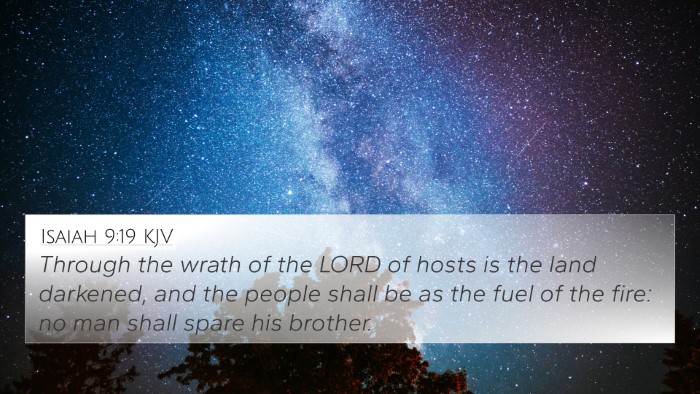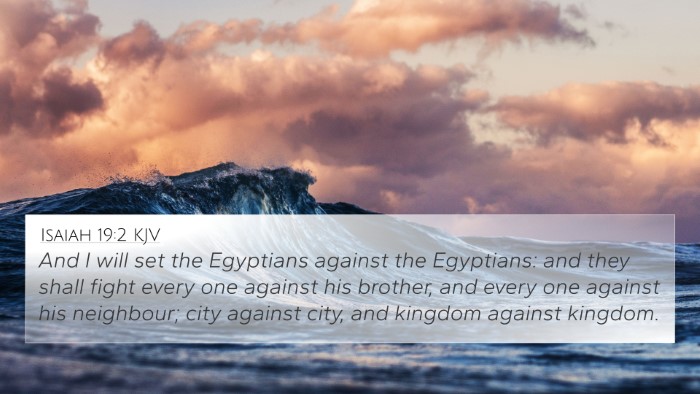1 Samuel 14:20: "And Saul and all the people that were with him assembled themselves, and they came to the battle: and, behold, every man’s sword was against his neighbor, and there was very great discomfiture." This verse presents a fleeting moment in the greater narrative of Israel's conflicts, particularly focusing on the chaos and turmoil that ensued during a pivotal battle.
Overview of the Verse
This passage illustrates a significant moment in Israel's history, where internal strife appears amidst the external conflict with the Philistines. It's a reflection of how disunity and confusion can impact the course of a battle.
Insights from Commentaries
- Matthew Henry: Henry emphasizes the theme of divine providence and judgment experienced by Saul's forces. He points out how the confusion among soldiers was seen as a curse from God, prompting reflection on the necessity of unity during warfare.
- Albert Barnes: Barnes provides a detailed context, noting that God often employs confusion and disorder to achieve his purposes, which may include the defeat of the enemy. He elaborates on the significance of having one’s own forces turning against each other as a warning against disobedience to God.
- Adam Clarke: Clarke draws attention to the hot nature of battle and the psychological state of the soldiers. He notes how fear and cowardice can lead to disarray, significantly affecting outcomes in military encounters.
Thematic Connections
This verse can also be better understood with cross-references to other biblical passages that explore the themes of unity, divine intervention, and the consequences of disobedience.
Cross-References:
- Judges 7:22: Here, the Lord causes confusion among the Midianites, resulting in their self-inflicted chaos during battle.
- 1 Chronicles 10:13-14: Reflects on the downfall of Saul, emphasizing the abandonment of asking God for guidance, leading to disastrous consequences.
- Proverbs 21:30: Suggests that there is no wisdom, understanding, or counsel against the Lord, correlating to how Saul's neglect of divine instruction led to despair.
- 2 Chronicles 20:22: Details a situation where praise in the face of battle leads God to set ambushes against the enemies, showcasing the power of divine assistance versus human strife.
- Isaiah 19:2: A prophecy of God sending confusion in the Egyptian ranks, which exemplifies God's hand in turning the tide of conflict.
- Luke 11:17: The New Testament discussion about a house divided; a re-emphasis on the dangers of division, reflecting principles established in 1 Samuel.
- James 1:8: Discusses being double-minded and unstable, which is akin to the chaos experienced in the battlefield noted in 1 Samuel.
Understanding Chaos in Battle
The chaos faced by Saul's army serves a deeper narrative that resonates throughout scripture concerning divine justice and the disastrous repercussions of disobedience. Saul's abandonment of God’s directives is a critical analysis point in understanding this passage.
Lessons from 1 Samuel 14:20
- The Importance of Unity: The disastrous outcomes seen in this battle reflect the theological constant found throughout scripture regarding unity amongst God’s people, particularly in spiritual warfare.
- Consequences of Disobedience: The self-destructive chaos serves as a reminder of what befalls those who do not adhere to the divine guidance and commandments laid out by God.
- Divine Sovereignty: God's control over chaos highlights the ongoing reality that God can intervene in human affairs, turning confusion into victory or defeat as part of His sovereign plan.
Conclusion
1 Samuel 14:20 remains a powerful reminder of the consequences of division and disobedience, illuminating the necessity for faithfulness to God amidst conflict. The connections drawn with other biblical texts enhance our understanding and interpretation, establishing a network of biblical truths that echo the themes of chaos, divine intervention, and the collective destiny of God's people.
Tools for Further Study
Utilizing resources such as a Bible concordance or a cross-reference Bible study guide can improve the understanding of these interconnected themes. Engaging in a comparative study of Pauline epistles or conducting an in-depth analysis of the links between the Prophets and Apostolic teachings may reveal further insights into the nature of God's judgment and deliverance.
